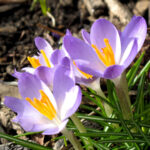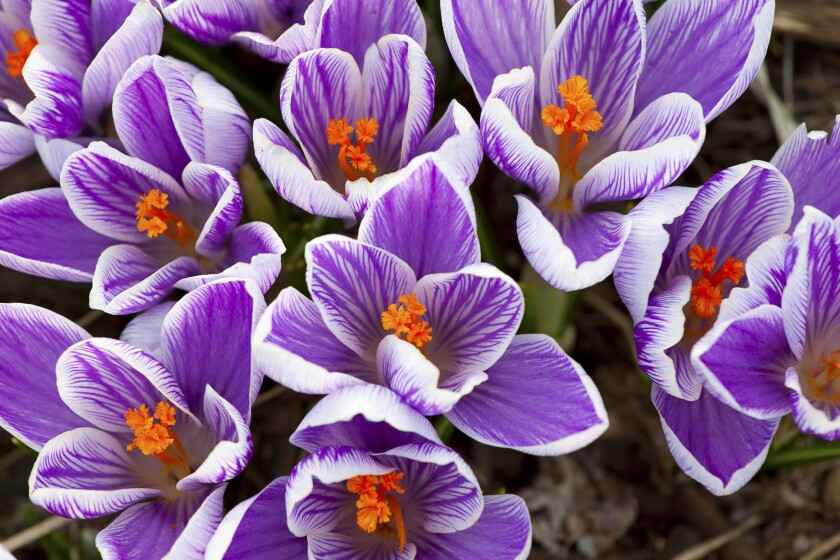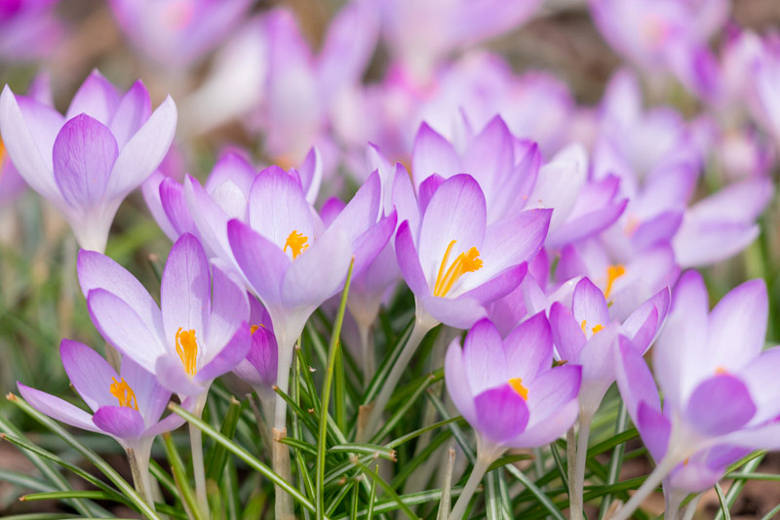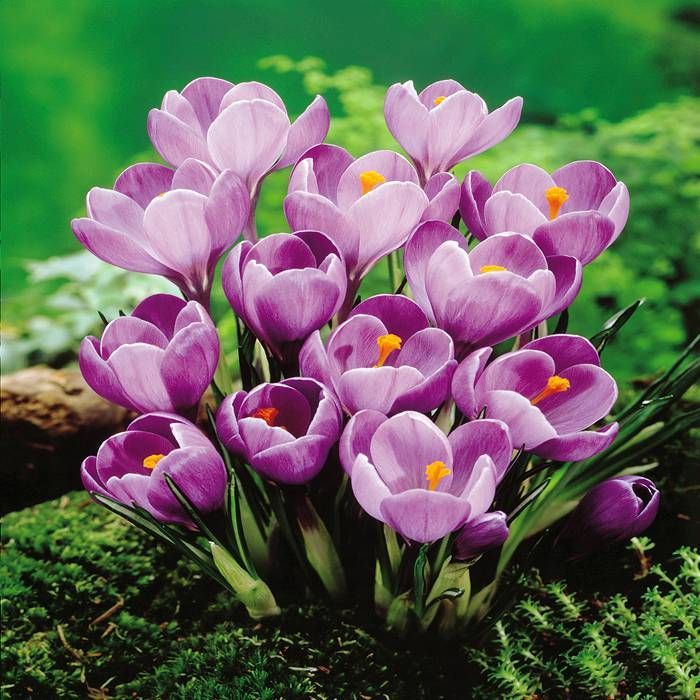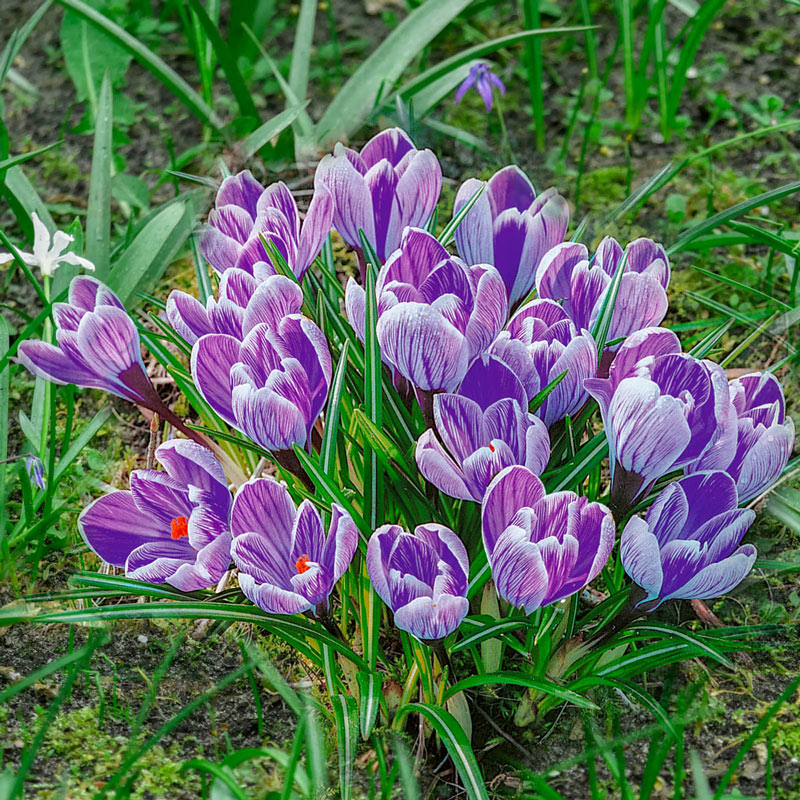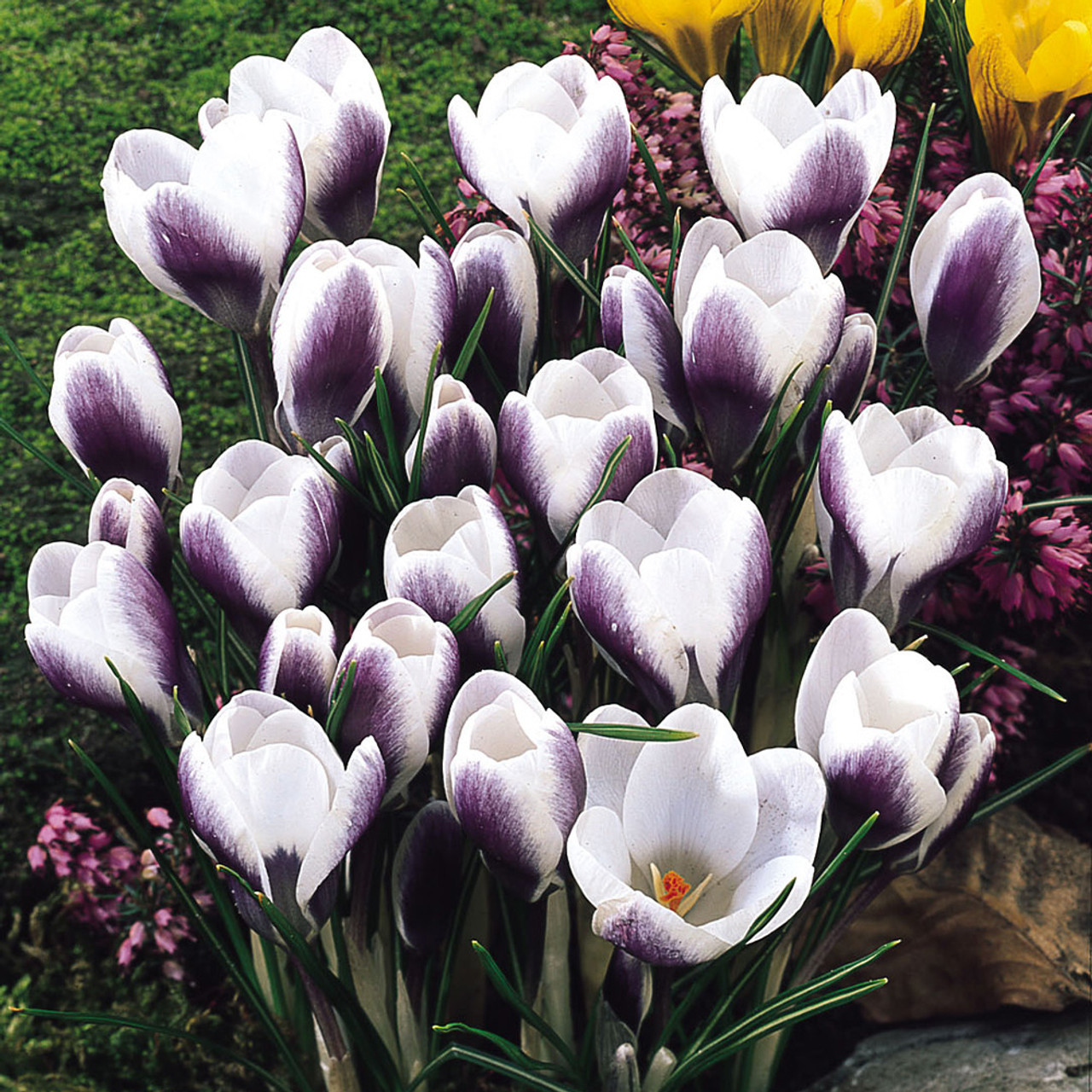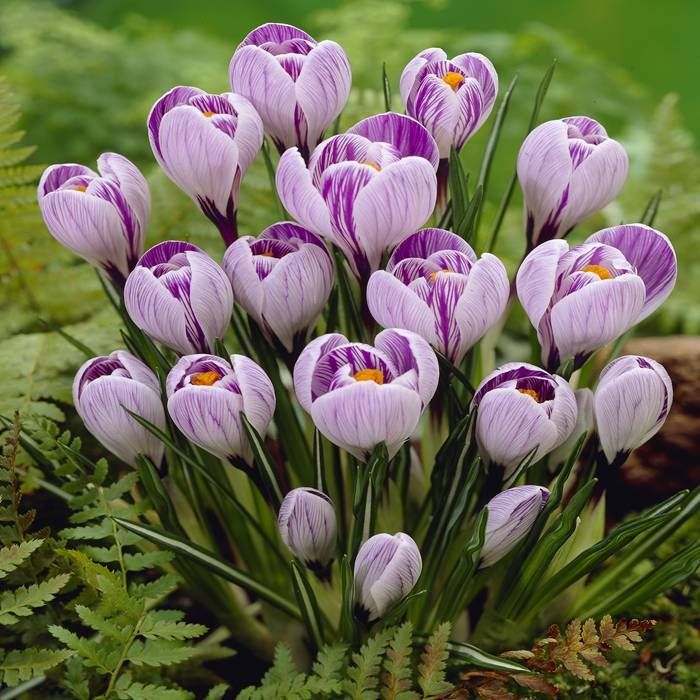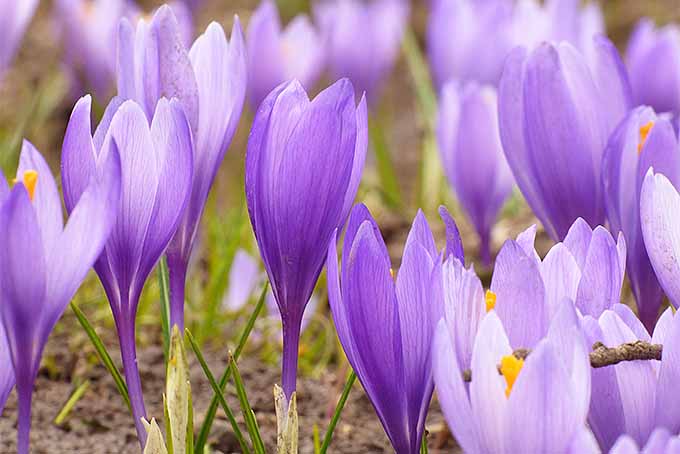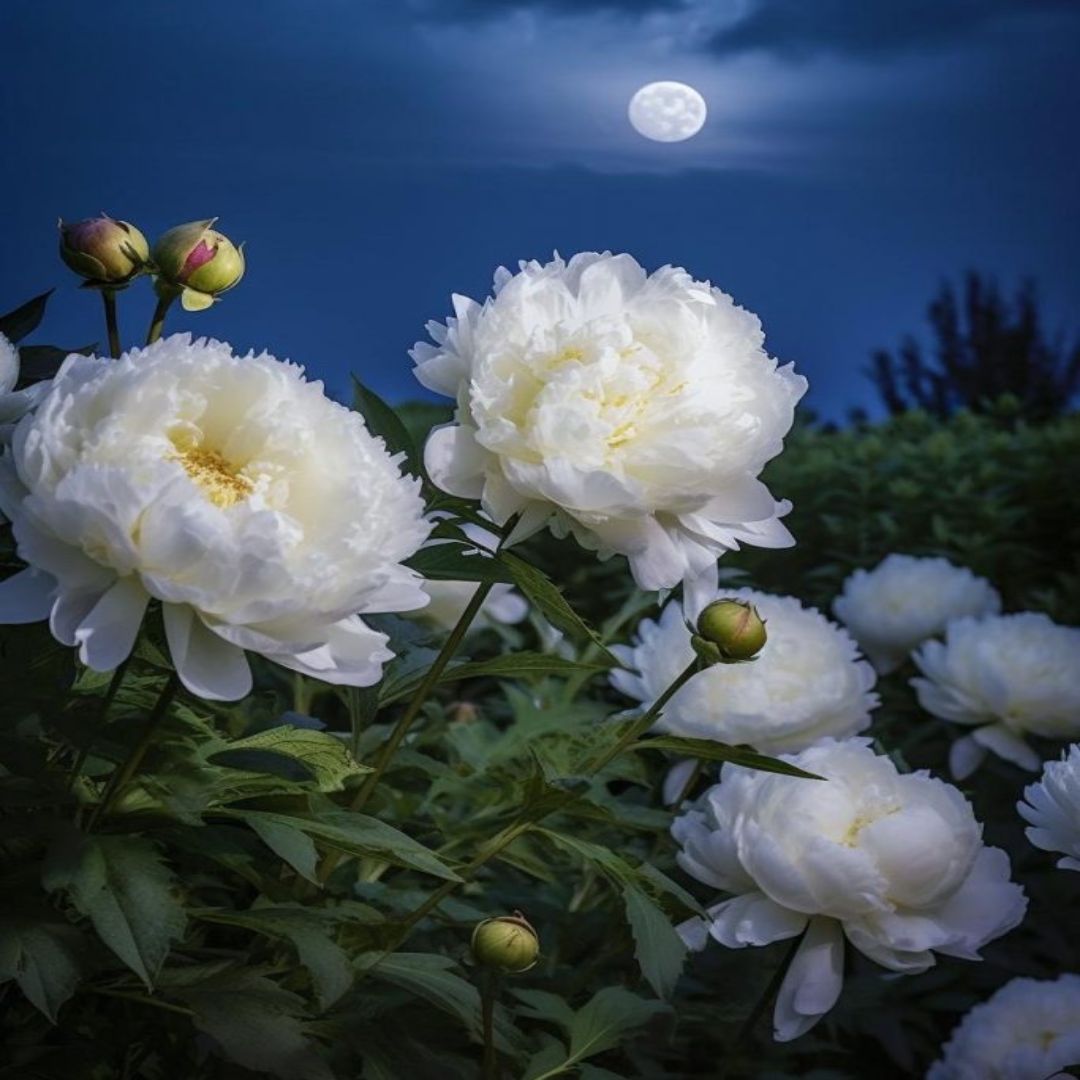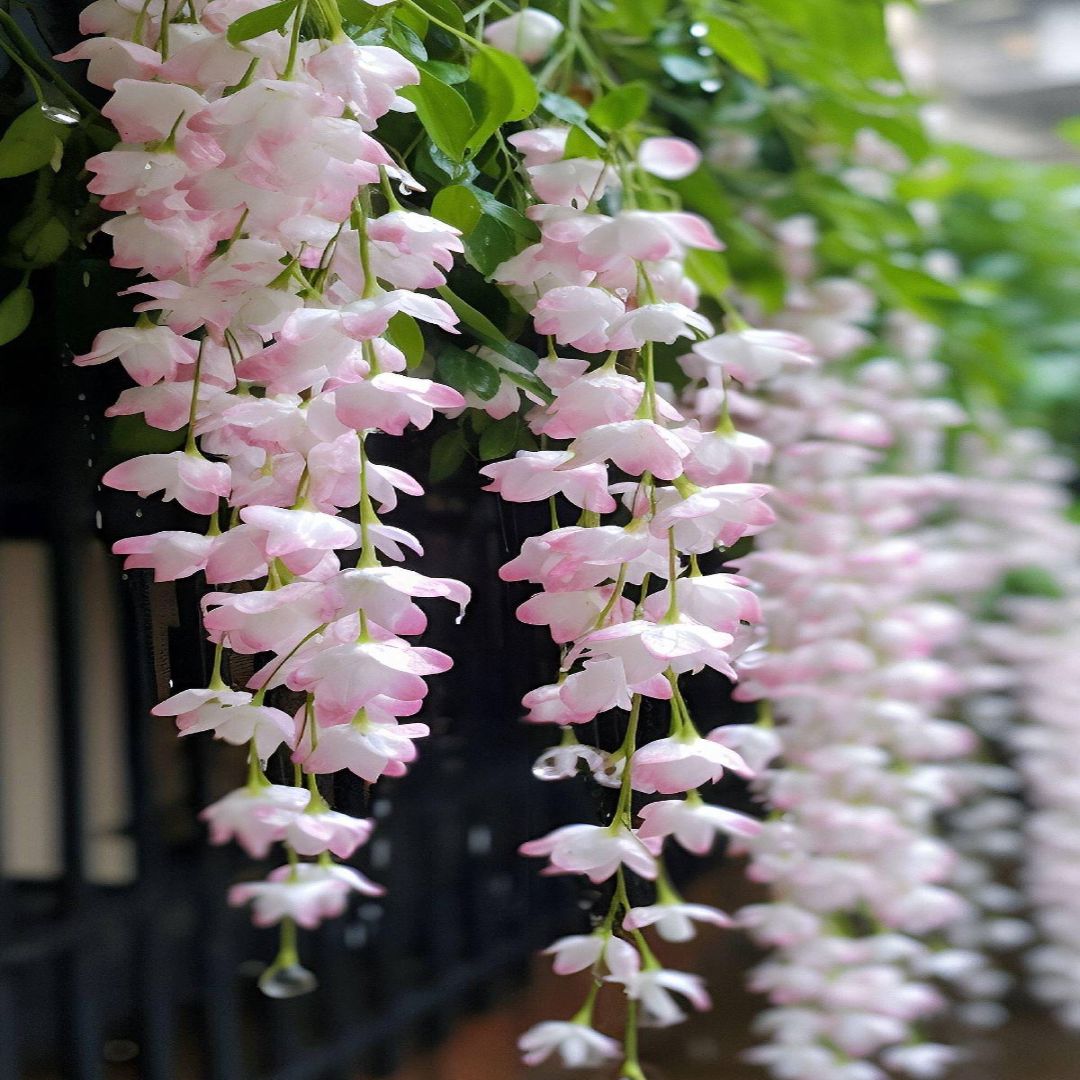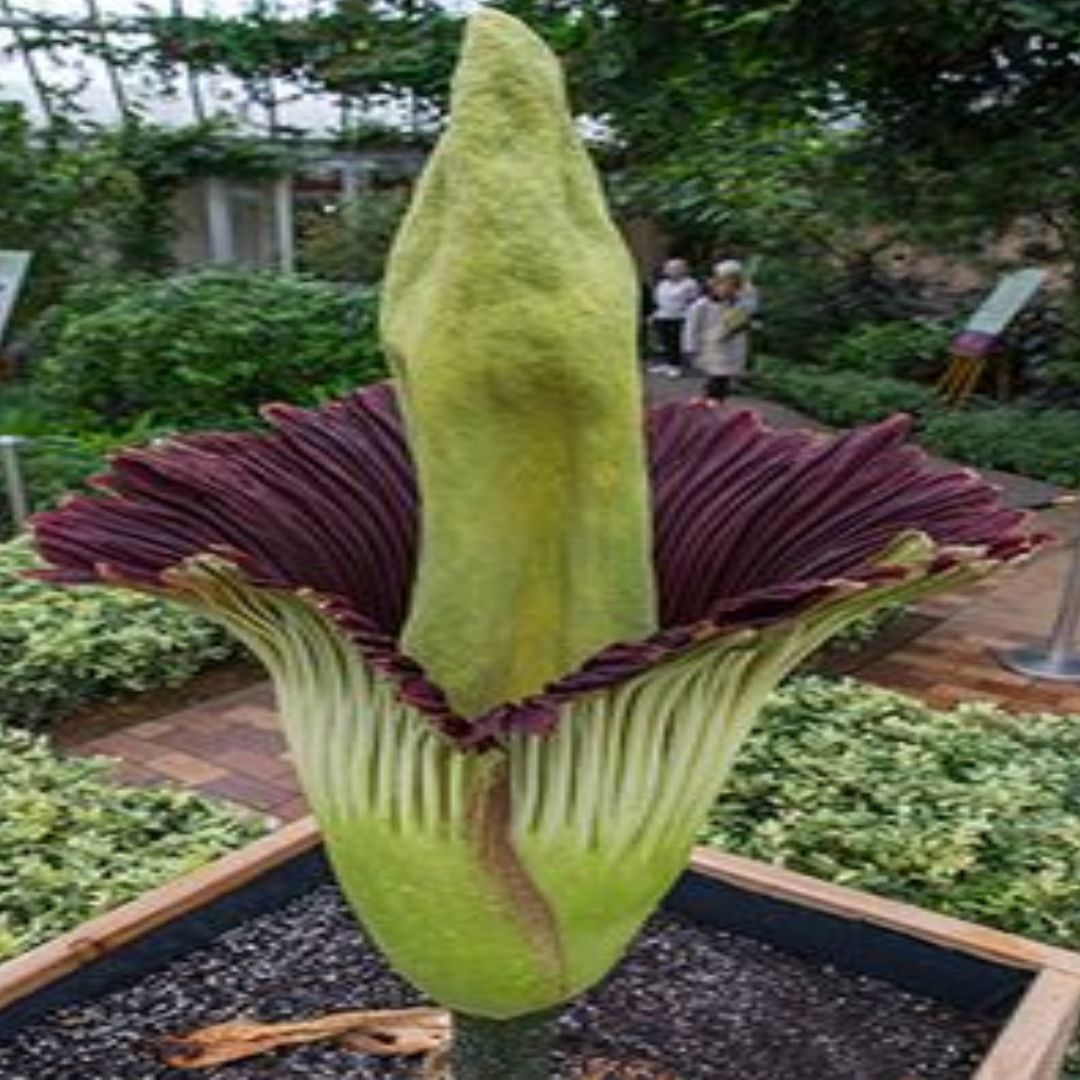Apply a balanced fertilizer in early fall if your spring is short and the days warm up quickly; or apply fertilizer after the bulbs have bloomed in late winter if the spring is long and temperate. The crocuses will have a chance to use the extra nutrients to produce larger carbohydrate stores.
During the fall, keep crocus beds watered if the weather turns dry, but don’t drench the soil. Cover the beds with compost before winter.
In late February, remove heavy mulches from snowdrops and crocuses so the shoots can come through. Leave a light layer of leaves to provide protection from late-season frost.
In February and March, keep plastic milk jugs or other covers on hand to protect the blooms of crocuses and other early bloomers against the return of severe weather.
If you have crocuses growing in your lawn in mid-spring, don’t mow until their leaves have died down.
RECOMMENDED VARIETIES‘Bowles White’ produces white flowers with deep golden yellow throats in early spring. It grows 2 to 3 inches tall.
‘Flower Record’ has single pale violet flowers in spring to early summer. It grows 4 to 5 inches tall.‘Pickwick’ is a striped crocus with alternating pale and dark purple and dark purple base. It is 4 to 5 inches tall and blooms in spring to early summer.
‘Tricolor Crocus’ is a beauty. Each narrow flower has three distinct bands of purple, white and golden yellow. It grows 3 inches tall and blooms in late winter and early spring.
‘Purpureus Grandiflorus’ has profuse violet flowers with purple bases.
It grows 4 to 5 inches tall and blooms from spring to early summer.




